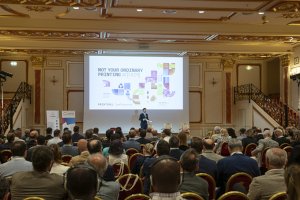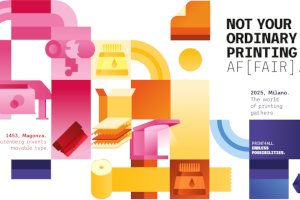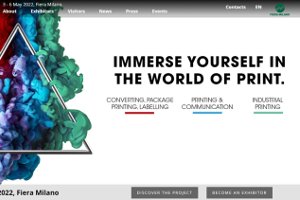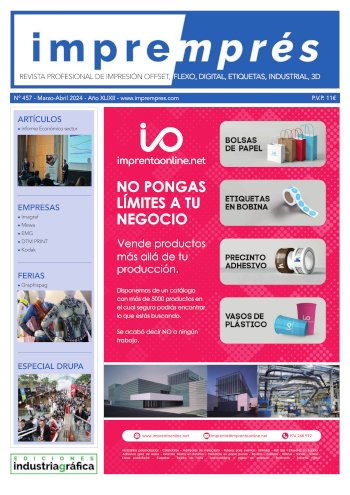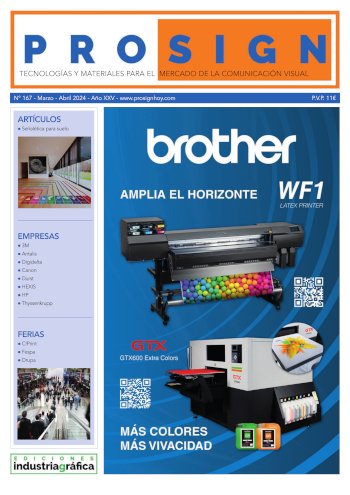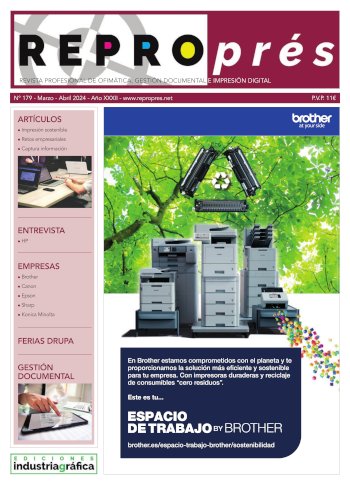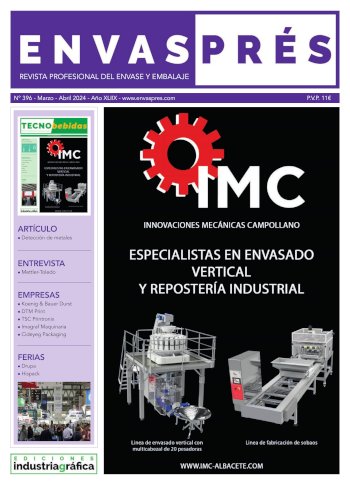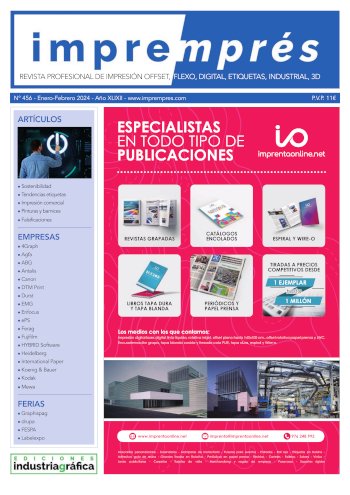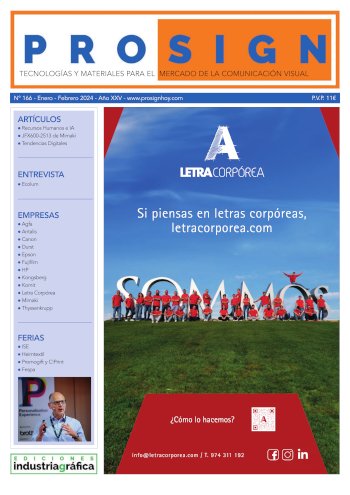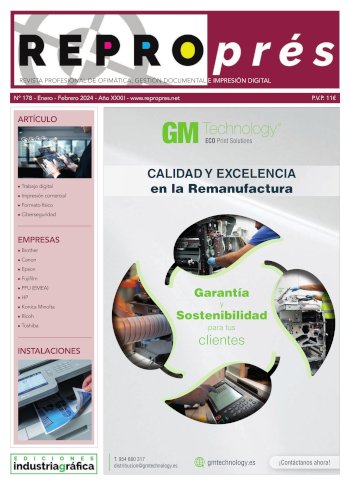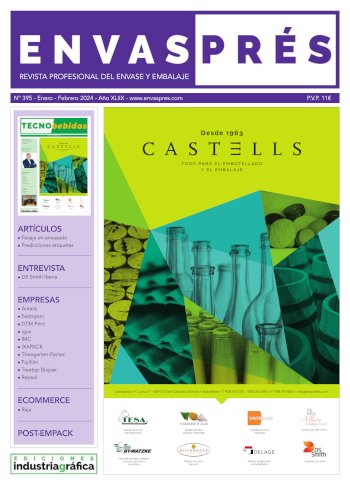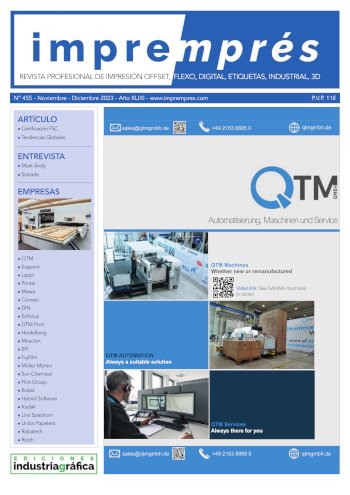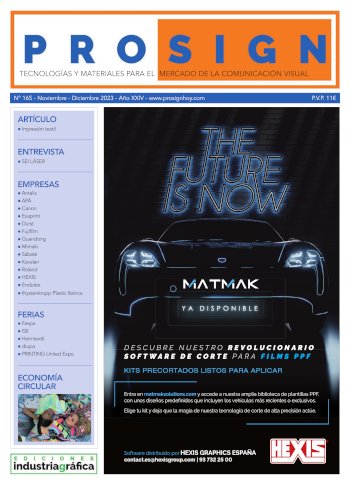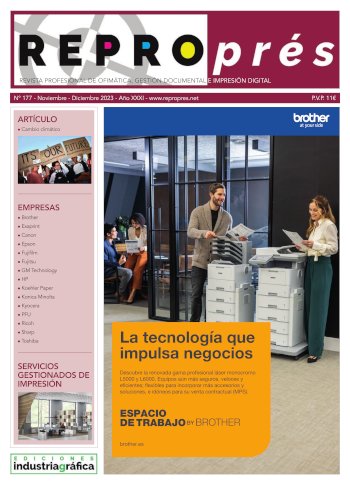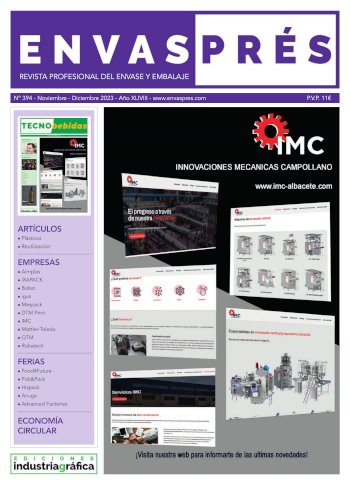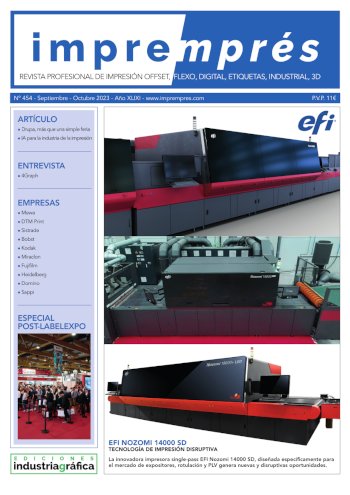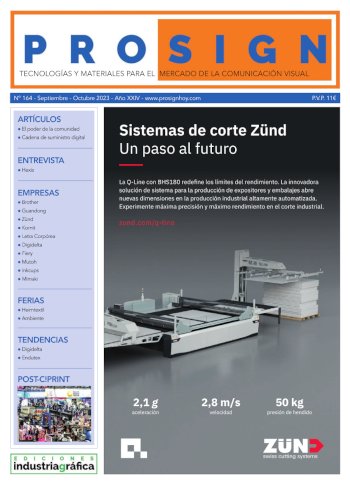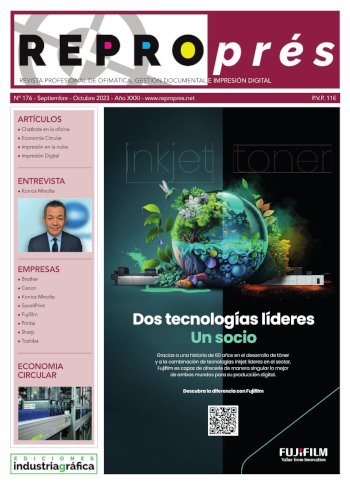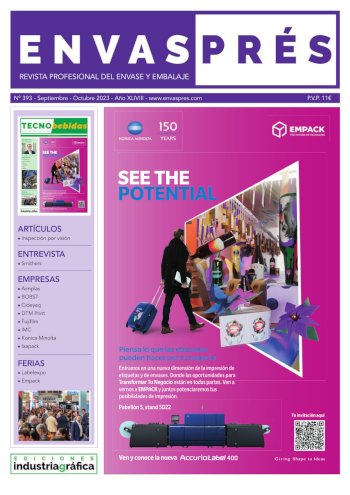PRINT4ALL changes the date and will be held from 3 to 6 May 2022
- Publicado el 24 de Julio de 2020
The postponement was announced following after the upheaval of the international trade fair calendar caused by the coronavirus emergency.They are restarting from the recently concluded Print4All Conference and looking at the challenges of a dynamic, constantly evolving industry.
Print4All changes date. The appointment is now in Fiera Milano (Italy) from 3 to 6 May 2022. The postponement of several European trade fair events dedicated to printing, which were originally slated to be held during these months concerned by the health emergency, has upset the international trade fair scene and the presence of other events at dates close to Print4All would have prevented some companies from properly deciding where to focus their attention and investments.
For this reason, a new date was set for the event that springs from the collaboration between ACIMGA (Italian Manufacturers Association of Machinery for the Graphic, Converting and Paper Industry), ARGI (Italian Graphic Industry Suppliers Association) and Fiera Milano and is dedicated to all aspects of the printing world (converting, package printing, labelling, commercial and industrial printing) to support the market better. The new dates were announced in preview during the Print4All Conference, the annual meeting of the sector, which took place in live streaming on June 24.
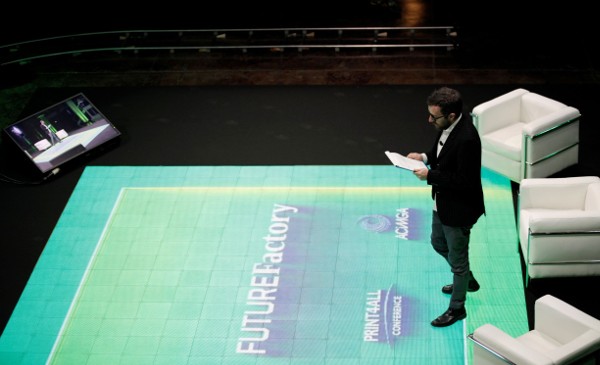
Organized by ACIMGA, the 2020 Conference entitled "Future Factory - Printing the future, now " was the ideal restart step to gear up for the main event. Attended by over 1,200 participants, 33% of whom international, the importance of this appointment for the printing community as an opportunity for exchange, updating and taking stock of the issues that will be at the heart of the exhibition project was demonstrated once again.
The past few months have forced everyone to rethink their production and industrial processes, revealing the importance of technological innovation, as well as the resilience and flexibility of single companies, even more clearly. Not by chance, the Conference focused on the issues of sustainability and Industry 4.0 that if appropriately seized can turn a crisis into an opportunity. If Industry 4.0 is the key for efficiency (and, therefore, connecting, integrating processes, decentralizing), sustainability means effectiveness, and therefore attention to the environment but also the economic and social impact that production carries with it.
Therefore, we must restart by aiming straight at these objectives, grasping the advantages that the lockdown has indirectly left behind, such as the Digital Transformation, that imposed a pervasive, high-performing leap forward in the use of existing technologies to respond to the emergency, the ability to develop smart solutions, because printing promptly adapted to new methods and new media, and the drive to build a new normality, a real paradigm shift in which digitization, Industry 4.0 and sustainability can no longer be an option.
Availing of the statements of several world associations, the Conference presented the current market situation at international level in light of the upheavals following the lockdown and health emergency.
According to INTERGRAF, the European trade association of the printing world, coronavirus has had a substantial but fortunately not so devastating impact on the European printing industry, represented by 109,000 companies, 603,000 employees and a turnover of 79 billion Euros. While it is true that many companies have postponed their paper advertising campaigns by at least six months, mail advertising is back and the forecast looks encouraging. According to Smithers, ink printing will increase until 2024, with a growing trend towards customisation. Closing the European overview is Great Britain, where the impact of coronavirus on the printing world was major. The lockdown caused 70% of orders to be cancelled (estimates: PICON), with huge consequences on employment. However, while the situation is complex for those with a traditional, wait-and-see approach, there is no shortage of opportunities for the companies that invest to offer new products with high added value, sustainable proposals and specific consultancy.
Further away from home, according to IPAMA, India is aiming to return to normal within 6-9 months. Although production was down by 50% in June 2020, the prospect is to reach 70% in a month's time. The United States which saw a 5% recession for the printing sector do not expect recovery to begin until 2021 (APTech estimates). Finally, printers in China are focusing on new technologies and integration, after the market suffered a more than 30% blow in recent months according to data from the PEIAC association.
Unfortunately, although it has been a buzzword for some time, Industry 4.0 is often perceived by companies only as new investments in technology. The recent lockdown showed that a company is 4.0 only when it manages to connect and integrate with the players upstream and downstream on the value chain. Integrating the supply chain implies major advantages: more resilience, fast sharing of information, the possibility of making collaborative decisions that minimise risks and maximise the ability to react to changes underway.
Many entrepreneurs at the helm of important companies in the sector declared that companies are changing as a result of technological development. Production processes are created through short, direct, linked and synergistic chains and the more constant and collaborative relationships with customers, oriented towards greater efficiency, are also evolving as a result of the ability to manage orders from SAP, continual quality analysis and predictive maintenance, for instance.
However, it would be wrong to attribute the potential of this powerful change only to new technologies. Artificial intelligence, one of the most interesting technological solutions for a variety of potentially possible applications, cannot replace the human brain but can become an opportunity for "augmented intelligence" providing packaging and printing with new applications and new ways of doing things and combining business and research.
Sustainability and circular economy are fundamental aspects of industrial development for Packaging and Printing. During the Print4All Conference, it emerged that Industry 4.0 and sustainability are deeply synergistic and complementary. It is precisely this technology that allows for more careful management of energy and materials, making it possible to achieve sustainable goals.
A company on a path towards sustainable development faces more than just costs. The investments are for a better future, to defend the brand reputation and to boost the ability to attract sustainable finance players. It is therefore not just an ethical or environmental objective. It is about corporate sustainability and choices that can solve real problems and optimise investments. In package printing, for instance, 55% of companies throw away more than 50% of their printed matter, due to inaccurate estimates. Solving the problem using digital printing, for example, can mean saving money and better management of company resources, as well as protecting the environment.
This is why it is important to think in the circular economic perspective following three cardinal principles: eliminating waste by thinking about the end of product life, keeping the products in use as long as possible and finally recycling and regenerating the materials with which they are made. Being sustainable is not just about respecting the environment or doing something useful today. Sustainability means meeting today's needs without compromising the ability of future generations to meet their own needs.
Companies must transform processes and relationships to make products sustainable but the same must apply to the packaging, the production process, the employee approach and the communications. The challenge is a complex one and all the components of the ecosystem – manufacturers of machines, finished products and consumer services – are called to shift mentality, priorities and behaviours.
The discussion at the Print4All Conference highlighted how printing materials play a crucial role in achieving sustainability goals and in making technological development a reality. There are no materials less efficient than others, just as there are no materials less sustainable than others. The awareness with which they are employed and continual research on their use, treatment and disposal are the keystones for the effectiveness and efficiency of the entire printing and packaging system.
Sensitivity for efficient use of materials is now very much present in companies in the printing sector, committed to investing in technology and design to come up with mono-material or increasingly recyclable packaging solutions, in close contact with brand users and their needs.
But sensitivity must permeate the entire supply chain and percolate down to the final consumer. So, if on the one hand, the aim is to ask for shared sustainability guidelines, to work as a system and bring together the needs of the market, on the other hand, there is the need to raise awareness among the public that is sometimes misled by some materials being considered as the root of all evils and that is not sufficiently informed about the progress made by the industry to use and recycle them in an efficient and increasingly sustainable manner.
Many targets related to the recycling of certain materials, such as paper, have been largely achieved already today. The new European Directive set the 75% recycling goal for 2025 while, according to COMIECO (Italian Consortium for recovery and recycling Cellulosic-based packaging), 81% has already been achieved today. According to COREPLA (Italian Consortium for the Collection and Recycling of Plastic packages), 45% of recycling has already been achieved, with 1 million, 650 thousand tons collected every year.
The 2020 Conference laid the foundations for the reflection on sustainability and Industry 4.0 that will characterise the 2022 edition of Print4All, which will be held at Fiera Milano from 3 to 6 May. Once again, the event will be held together with IPACK-IMA, dedicated to processing and packaging technologies, and INTRALOGISTICA ITALIA, dedicated to integrated solutions and systems for industrial handling, warehouse management, material storage and picking.
Exceptionally for this edition, PLAST and MEAT-TECH, the other two events of The Innovation Alliance portfolio, will be held on different dates. While the originally planned dates for PLAST have been confirmed (the event will be held from 4 to 7 May 2021), the appointment with MEAT-TECH will be from 17 to 20 May 2021, together with TUTTOFOOD, the international B2B exhibition dedicated to food & beverage organised by Fiera Milano.
This contingency was consequent to the awareness of being able to support the investment choices of companies, but which does not put the value of the synergy between these events in question, sure that together they represent the best of industrial mechanics gathered in a virtual supply chain.
So, although the dates of The Innovation Alliance's events have changed, there is no change in the drive to create a system and promote the logic of the event. The five events continue to strive to create exchanges between different sectors as a valuable resource for companies. To restart each event, the organisers have set themselves the objective to work to create horizontal initiatives designed to accompany operators until the appointments are reunited, as will be confirmed after this exceptional two-year period of change.



